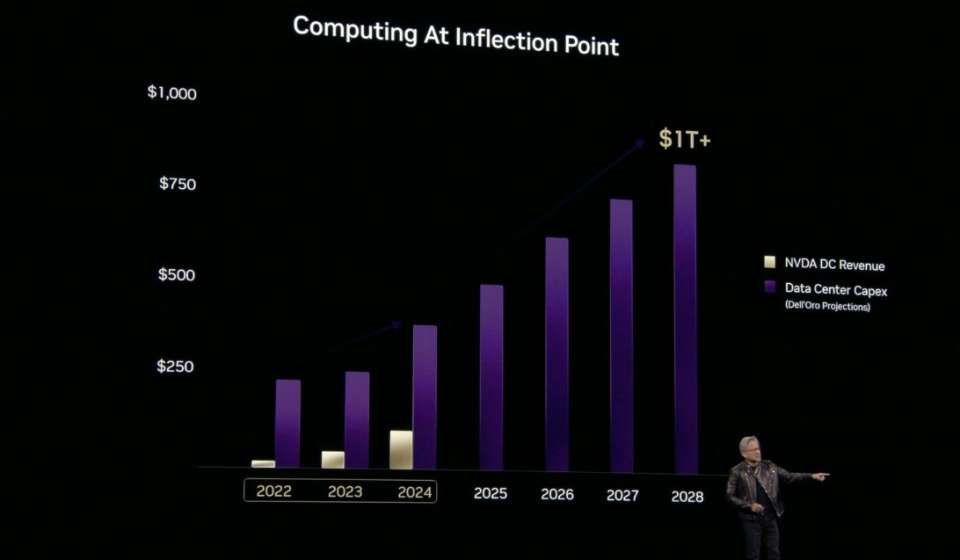Nvidia's Strategic Role in the AI Revolution
Nvidia's AI computing demand is surging, with CEO Jensen Huang highlighting significant growth and strategic innovations in AI hardware and partnerships.

Nvidia's Strategic Role in the AI Revolution
Nvidia CEO Jensen Huang has confirmed that demand for AI computing has increased substantially this year and continues to grow, underscoring the company’s pivotal role in fueling the global artificial intelligence revolution. Speaking publicly in late 2025, Huang emphasized Nvidia’s expanding engagement in AI infrastructure and innovation, positioning the company as an indispensable player in the rapidly evolving AI ecosystem.
Surging AI Demand Drives Nvidia’s Growth
During recent interviews and industry events, including a detailed discussion on CNBC’s “Squawk Box,” Jensen Huang highlighted a significant uptick in AI computing requirements from enterprises, cloud service providers, and research institutions worldwide. This surge is primarily driven by the rapid adoption of large language models, generative AI applications, and AI-powered services across sectors such as healthcare, finance, automotive, and entertainment.
Key points from Huang’s statements and Nvidia’s strategic positioning include:
- Substantial increase in AI-related GPU sales: Nvidia’s specialized GPUs designed for AI workloads, such as the H100 and A100 Tensor Core GPUs, are in high demand for training and inference of complex models.
- Expansion of Nvidia’s AI software ecosystem, including the CUDA programming platform and AI frameworks like Nvidia NeMo and Triton Inference Server, which facilitate faster AI model development and deployment.
- Growing partnerships with AI companies and cloud providers, notably Nvidia’s ongoing collaboration with OpenAI, which leverages Nvidia’s GPUs to power large-scale AI models.
- Investment in next-generation AI hardware, including the anticipated launch of newer GPUs and AI accelerators targeting both data centers and edge devices.
Nvidia's Role in the AI Industry Landscape
Nvidia’s GPUs have become a foundational technology for AI development due to their parallel processing capabilities, which dramatically accelerate machine learning tasks. Huang’s remarks reflect Nvidia’s strategic focus on:
- Meeting massive computational demands required by transformer-based models like GPT and other generative AI architectures.
- Providing scalable AI infrastructure solutions for cloud providers such as Microsoft Azure, Amazon Web Services, and Google Cloud, all of whom integrate Nvidia GPUs into their AI offerings.
- Driving innovation in AI inference at the edge, enabling devices like autonomous vehicles, robotics, and smart cameras to process AI locally with lower latency.
According to industry analysts, Nvidia’s share of the AI hardware market has expanded significantly in 2025, with the company’s revenues from AI-specific products growing at double-digit rates year over year. Huang’s commentary confirms that Nvidia expects this momentum to persist well into the coming years due to ongoing advancements in AI technologies and broader enterprise adoption.
Broader Implications for the Tech Sector
The spike in AI demand noted by Huang is emblematic of a broader trend where AI is becoming integral to business operations, consumer applications, and scientific research. Nvidia’s success underscores several critical industry dynamics:
- Hardware bottlenecks in AI: As AI models grow larger and more complex, the need for powerful, efficient hardware accelerators intensifies, making Nvidia’s GPUs essential components.
- Competition and collaboration in AI chipmaking: Nvidia faces competition from companies like AMD and Intel, but its early investments in AI-specific GPU architectures and software give it a competitive edge.
- AI democratization: By enabling faster and more accessible AI computing, Nvidia helps lower barriers for startups and researchers, accelerating AI innovation globally.
Visualizing the AI Surge: Nvidia’s Impact and Leadership
Jensen Huang, Nvidia CEO, has been a vocal advocate of AI technologies and the company’s role in powering the AI revolution.
Nvidia’s H100 Tensor Core GPU is a flagship product designed to accelerate AI training and inference at scale.
Looking Ahead: Sustained Growth and Innovation
Jensen Huang’s assertion that AI demand is “up substantially” and still growing reflects a strong confidence in Nvidia’s market position and the transformative potential of AI technology. As AI applications proliferate and computational needs escalate, Nvidia is poised to remain at the forefront of AI hardware innovation. The company’s ongoing investments in next-generation GPUs, AI software platforms, and strategic partnerships are likely to sustain its leadership role in the increasingly AI-driven global economy.
This growth trajectory not only benefits Nvidia’s business outlook but also signals a broader technology shift with profound impacts on industries worldwide, reshaping how data is processed, insights are generated, and intelligent systems are deployed.




